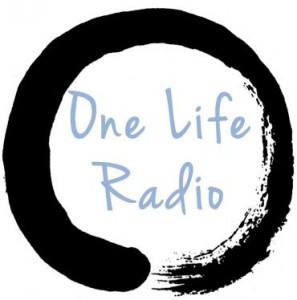Dr. James Dowd is a frequent guest on One Life Radio. You can listen to this episode live at http://oneliferadio.com/monday-oct-26th-2015/. Here are a few of the key points from this interview:
How much sleep do we need?
Most studies converge on 7 hours as ideal for an adult. Less than that and risk for disease and death rise about 10-15%; more than 8 hours and the risk for disease and death rise even faster. If you sleep 10 or more hours a day your risk of disease or death is significantly greater than if you sleep less than 4 hours a night. So, it is bad at either extreme but particularly if you are sleeping >10 hours a day.
Why do we need sleep? What is going on at night with our body and brain?
We need sleep to rejuvenate our body. During sleep our immune system and brain are very active repairing and organizing systems (musculoskeletal, memory, digestion, bacterial management, etc…). Sleep is part of our circadian rhythm. If we compared it to seasons of the year it would be winter.
Do all the plants die in the winter? They are unconscious so to speak but busy preparing for the next season’s opportunities and obstacles. Under the frost line they are building networks with fungus and bacteria and accessing and storing nutrition in preparation for the spring. The cold temperature itself triggers genes that allow the tree to bud and flower in the spring.
Like plants we have something called clock genes. There are central clock genes in our pituitary gland at the center of our brain and there are clock genes in our thyroid, gut, heart, kidneys and every other system. These pacemakers coordinate activities on a day night cycle and on an activity cycle, say meal time, an annual cycle, and our life cycle. Digestion requires a coordinated effort between the brain for seeking and preparing food, the mouth and hands to eat, the stomach and pancreas to digest, the liver to process, the immune system to manage bacterial response to the meal. It is very complex but all seems to happen automatically. It is truly a miracle.
REM sleep and dream sleep represent our brain sorting through the bits and pieces of memory we acquired during the day. Our brain is a fantastic relational database that compares all new experience to our past as we interpret it. The new part of our brain then tries to piece together a logical story with this new information and play it through, test it out (a dream). This is why dreams are so bizarre and not tied to time or space or gravity, just bits and pieces spliced together.
When it cannot make sense of the memories because it is too fragmented, it sits out on the kitchen table until it fits into some context or story. Imagine a lifetime of scraps on the table that did not have a home. Current theory holds that these scraps of unfiled, usually traumatic bits of memory are the cause of depression, anxiety, fibromyalgia, and PTSD. REM sleep is critical at sorting through these fractured memories.
What is sleep apnea and what are the risk factors?
There are 2 basic kinds of sleep apnea, obstructive (OSA) and central (CSA). Obstructive is by far the most common type of apnea. Apnea is the cessation of breathing. There is another term hypopnea which is inadequate breathing. Both can be associated with a decrease in oxygen and a rise in carbon dioxide (CO2) in the blood which drive much of the dangerous biology that results from this disordered breathing.
The primary risk factors for obstructive apnea are male gender, age over 40, and obesity, but there are plenty of skinny people who have apnea.
OSA is associated with increased incidence of obesity, hypertension, hyperlipidemia, coronary heart disease, diabetes, stroke, and cardiac arrhythmias especially atrial fibrillation. It has also been associated with depression, other mood disorders, and cognitive dysfunction. This is the primary driver of morbidity and mortality in patients who don’t get enough sleep.
What should we do to ensure adequate healing sleep?
Have a sleep routine. No flat screen time (blue spectrum light) for 1-2 hours before bedtime. Read something unexciting or listen to relaxing music in dim incandescent light before bedtime. Exercise daily. No ETOH 4 hours before bedtime. No caffeine 7 hours before bedtime. No food 2 hours before bedtime. Be careful not to drink too much water in the 2-3 hours before bedtime or you will wake to use the bathroom.
